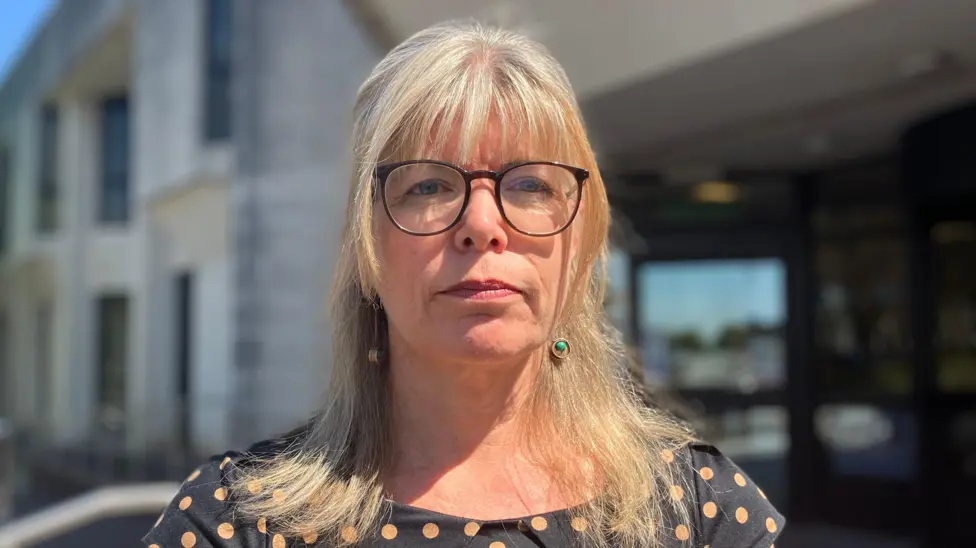Education
Be the #1 – inspiring looked-after learners

 THE UNIVERSITY OF WALES TRINITY SAINT DAVID (UWTSD) is playing an integral part in an inspirational new campaign that will be launched during National Care Leavers’ Week later this month.
THE UNIVERSITY OF WALES TRINITY SAINT DAVID (UWTSD) is playing an integral part in an inspirational new campaign that will be launched during National Care Leavers’ Week later this month.
The aim of the Be The #1 campaign is to encourage Foster Carers, key workers and teachers to help the young people in their care to raise their educational attainment and aspirations.
National Care Leavers’ Week is about highlighting the needs of Care Leavers and encouraging the agencies responsible for looking after them to work in a coordinated and effective way.
The dedicated carers week also offers an opportunity to focus on the numerous issues facing an invisible minority who have to deal with a particular set of challenges as they enter adult life. It’s also a chance to raise awareness amongst the public and to underline the support that’s desperately needed for these young people.
Trystan Rees from UWTSD has been working collaboratively with the South West Wales Reaching Wider Partnership to develop the Be The #1 campaign – a series of short films, focusing on four individual students and graduates on their unique academic journey from Year 13 to entering employment following their graduation from university.
With the Be The #1 campaign launched to coincide with National Care Leavers’ Week, one film will be released each day from October 20 until October 30.
Staff from UWTSD and the South West Wales Partnership will also be delivering a programme of Be The #1 training sessions to Foster Care networks from across South West Wales from November 2016.
“UWTSD is committed to providing a very high standard of care and support for its students,” said Trystan Rees.
“If you are a student entering Higher Education from care, you can be assured that the university will offer the necessary support and information. This support is available whilst you are deciding what or where to study, continuing throughout the university application process, and is ongoing once you have started your course. Help and information is also available if you are someone advising a student from care,” continues Trystan.
Young people from a care background can declare on their UCAS application form that they have been in care, or their Social Services team can let the university know that the student is a Care Leaver. This enables the university to make sure that support is in place from an early stage.
“UWTSD provides a friendly, safe and welcoming place in which to study. After the student has been offered a place at the university, they will have the opportunity to come to a support meeting which will be arranged to help them with the transition to university life,” continues Trystan Rees.
“The meeting can include the student, their Looked after Children team member, the university’s named person for Care Leavers, and, if required, the Accommodation Officer and a representative from the academic school that they will be joining. During this meeting, it will be possible to establish how much financial support is available to the student, and the type of accommodation they would prefer and, where appropriate, to make provision for any additional support they may need such as for a disability or specific learning difficulty like dyslexia,” he added.
Katie King has been through the care system and is currently studying at UWTSD’s Carmarthen campus.
“I’m Theatre Design and Production student at the university and am currently in my third year. I’ve had a social worker for longer than I can remember and was in and out of foster care a lot – I think in one year I managed seven or eight placements,” says Katie.
“I would say the biggest hurdles in getting into higher education is getting people to listen to you and understand you and see that you’re serious. Whilst in higher education, I’ve received great support from different departments, particularly from student services and from a lady called Delyth Lewis.
“Delyth is the finance officer but also deals with Care Leavers at this university. She has been extremely helpful in providing support – it’s probably down to her that I’m still here. She pushed me to continue because she knew that it’s what I wanted to do – she’s always giving me options of how I can do that and basically gone beyond what her job requires her to do.
“University has definitely changed me as a person for the better. I’m a lot more confident. I’m now working as a student ambassador for the university – I do a lot with Reaching Wider and with the marketing team, showing people around and telling them about the university and how good it is, how much it’s helped me,” added Katie.
Alex Sommerville, who’s also been through the care system, recently graduated from UWTSD and found her university experience invaluable.
“I did the Youth and Community Work degree and that has directly led on to the work that I do now – working with young people around substance misuse in Swansea,” said Alex.
“I’d always had the impression that to go to university you need to have A Levels, like going through sixth form, so I did actually sign up and do an A Level of English literature. It’s when I was talking to my friend about having to do another two A Levels that she told me about an access course I could do. It’s at the university, but it’s at A Level standard and I found the whole experience really useful, especially because it was then that I was diagnosed with dyslexia and dyspraxia.
“I accessed support at the university through student services and it was really, really good. I got contacted not long after I started because I’d ticked the box on the application form that said I was a Care Leaver. I then had a chat with a lovely lady who said that she would be my contact for the whole time I was at university.
“I do think everyone has the potential. I think it should be open to everyone and I did have the impression that if you’ve been in care, university is something that you’re really ever going to achieve, which is totally wrong. Don’t get me wrong, a degree isn’t for everyone but I think that everyone should have the option,” said Alex.
For further information on the support offered to Care Leavers, please visit www.uwtsd.ac.uk/care/.
Community
Letterston nursery equipment could be stored in cemetery

A CALL for a storage container for a “well-established and valued” Pembrokeshire children’s nursery in a nearby cemetery has been submitted to county planners.
In an application to Pembrokeshire County Council, Diane Evans of Meithrinfa Do Re Mi Nursery seeks permission for the installation of a storage container, partially in retrospect, at Horeb Cemetery, Station Road, Letterston.
A supporting statement says: “The container is required to provide essential ancillary storage to support the lawful and established nursery use within the [nearby] chapel building.
“The site forms part of an active cemetery, owned and managed by a group of trustees. The applicant is one of the trustees and has obtained formal permission from the trustees for the container to be sited on this land. The area selected previously comprised a large, longstanding mound of garden waste which has now been removed. The land has been levelled and prepared with a hard-standing base.
“The container will be used solely for storage of nursery equipment and materials, including outdoor learning resources, maintenance equipment, and items required to manage both the nursery grounds and the cemetery land. No additional operational activity will take place within or around the container.”
It adds: “The day nursery provides childcare for approximately 83 children from the local community and employs 21 staff, all of whom live locally. The nursery is a well-established and valued community facility, supporting local families and contributing positively to the local economy. Adequate storage is essential to ensure the safe, efficient and compliant operation of the nursery. The chapel building itself has limited internal storage, making external ancillary storage necessary.”
It says the nursery “operates with a strong community focus and promotes sustainability and environmental awareness,” with plans to soften its appearance through the planting of trees, shrubs and flowers.
It added: “Children will take part in a ‘sow, grow and give’ project, growing cut flowers from seed. These flowers will be made available to the community, particularly visitors to the cemetery, who will be invited to cut flowers to place on the graves of loved ones. This initiative enhances biodiversity, strengthens community links, and adds social value to the cemetery space.”
The application will be considered by county planners at a later date.
Education
Parents urge council not to close Ysgol Llansteffan

Campaigners call for delay amid Welsh language investigation and rising pupil numbers
PARENTS and campaigners have urged Carmarthenshire County Council’s Cabinet not to recommend the closure of Ysgol Llansteffan when members meet on Monday (Feb 23).
The appeal comes ahead of a proposed decision that could see the village’s Welsh-medium primary school close in August this year.
The Ysgol Llansteffan Parents and Teachers Association (PTA), supported by Cymdeithas yr Iaith, has written to councillors calling for the process to be halted, arguing that key evidence remains incomplete and that the case for closure is flawed.

Among their concerns is an ongoing investigation by the Welsh Language Commissioner into the language impact assessment used to support the closure proposal. Campaigners say it would be inappropriate for the council to make a final decision before the investigation is concluded.
They also claim no council decision-makers have visited the school to verify the information used in the proposal, despite significant changes in circumstances, including a rise in pupil numbers to 17 as of January 2026.
The PTA argues that this increase undermines earlier projections and raises questions about the reliability of longer-term forecasts used to justify closure.
Financial concerns have also been raised. While council documents suggest annual savings of around £112,000, campaigners say transport costs of approximately £50,000 per year and inflationary pressures have not been clearly accounted for, potentially overstating the net benefit.
Parents say closure would remove parental choice and risk damaging Welsh-medium education in the area by forcing some children to travel further or potentially move into English-medium provision.
Cymdeithas yr Iaith has backed the PTA’s call, warning that the council’s objection report failed to properly address concerns that insufficient school capacity elsewhere could push pupils out of Welsh-medium education altogether.
Campaigners have also criticised what they describe as factual inconsistencies in the council’s reports, including outdated enrolment figures and conflicting capacity estimates for neighbouring schools.
The PTA has asked the council to defer any decision until updated data is available, the Commissioner’s findings are published, and alternative options for sustaining the school have been fully explored.
In their letter, parents stressed they remain willing to work constructively with the council to develop a long-term solution that would allow the school to remain open as a sustainable Welsh-medium provision for the community.
Carmarthenshire County Council has previously said the proposal is intended to address falling pupil numbers, high surplus places and financial pressures at the school. Cabinet members were told earlier in the process that neighbouring Ysgol Llangain would have sufficient capacity to accommodate pupils if the closure proceeds, and that transferring learners would provide access to improved facilities and help ensure long-term sustainability of education provision in the area.
The final decision is expected to be taken by full council in March following the Cabinet’s recommendation.
Crime
Teacher stabbed by pupil criticises school weapon scanner plans

Victim says teachers should not be turned into “security guards” after Ammanford attack
A TEACHER who was stabbed multiple times by a pupil at a Carmarthenshire school has criticised proposals to introduce weapon scanners in classrooms, warning they risk shifting responsibility onto already overstretched staff.
Liz Hopkin was attacked by a teenage student at Ysgol Dyffryn Aman, Ammanford, in April 2024, in an incident that shocked communities across Wales.
Speaking to BBC Radio Wales, Ms Hopkin said she does not believe scanners are “the answer” to preventing violence in schools and warned they could undermine relationships between teachers and pupils.
She said the focus should instead be on preventing young people from bringing weapons to school in the first place.
“This isn’t about preventing people bringing knives into school in the first place. This is just about detection,” she said.
“If by the time you’ve got the knife in school, you’ve missed so many opportunities prior to that to stopping that knife coming in in the first place.”
Ms Hopkin also warned that introducing scanning responsibilities could place teachers in unsafe and inappropriate situations.
“To stop putting the responsibility onto schools — we already have enough responsibility with less and less and less resources,” she said.
“You’re adding the role of security guard to teachers who are trying to build relationships with young people.”
Despite suffering serious injuries in the attack, she said she still did not believe scanners were the right approach.
“In my own head, as somebody who’s been right at that point where I’ve been stabbed — I was stabbed five times and feared that I would die — I still don’t think it’s a good idea,” she said.
The Welsh Government told the BBC that its work around weapons in schools forms part of a wider strategy to improve behaviour, with a strong emphasis on prevention rather than enforcement.
Officials said any decision to use scanners would be made by individual local authorities, and there is no expectation that teachers or school staff should carry out security duties.
Some councils have already trialled handheld scanners. Cardiff Council has supplied them to schools, but they are only used when there is a clear concern a pupil may be carrying a weapon.
The stabbing at Ysgol Dyffryn Aman led to renewed debate about school safety across Wales, including behaviour management, pupil support services, and funding pressures facing education.
Ms Hopkin added: “I would never ever suggest that anybody put themselves at risk to check. That’s not our role.”
(Image: BBC)
-

 Health4 days ago
Health4 days agoWithybush loses emergency surgery in shock health board decision
-

 Health4 days ago
Health4 days agoHealth board confirms major hospital changes across west Wales
-

 Health3 days ago
Health3 days agoConcerns grow over Bronglais stroke plans as politicians demand clarity
-

 Health4 days ago
Health4 days agoHealth board: Changes will bring “resilience and sustainability” to West Wales services
-

 Local Government2 days ago
Local Government2 days agoCandidate who withdrew from Hakin race will still appear on ballot paper
-

 Business6 days ago
Business6 days agoMS’s host business advice surgery following demand from Business Rates Online Forum
-

 Crime6 days ago
Crime6 days agoMan charged with GBH with intent following incident involving ‘Pembrokeshire Patriot’
-

 Crime6 days ago
Crime6 days agoTeen given community order after assaulting police officer at hospital





























